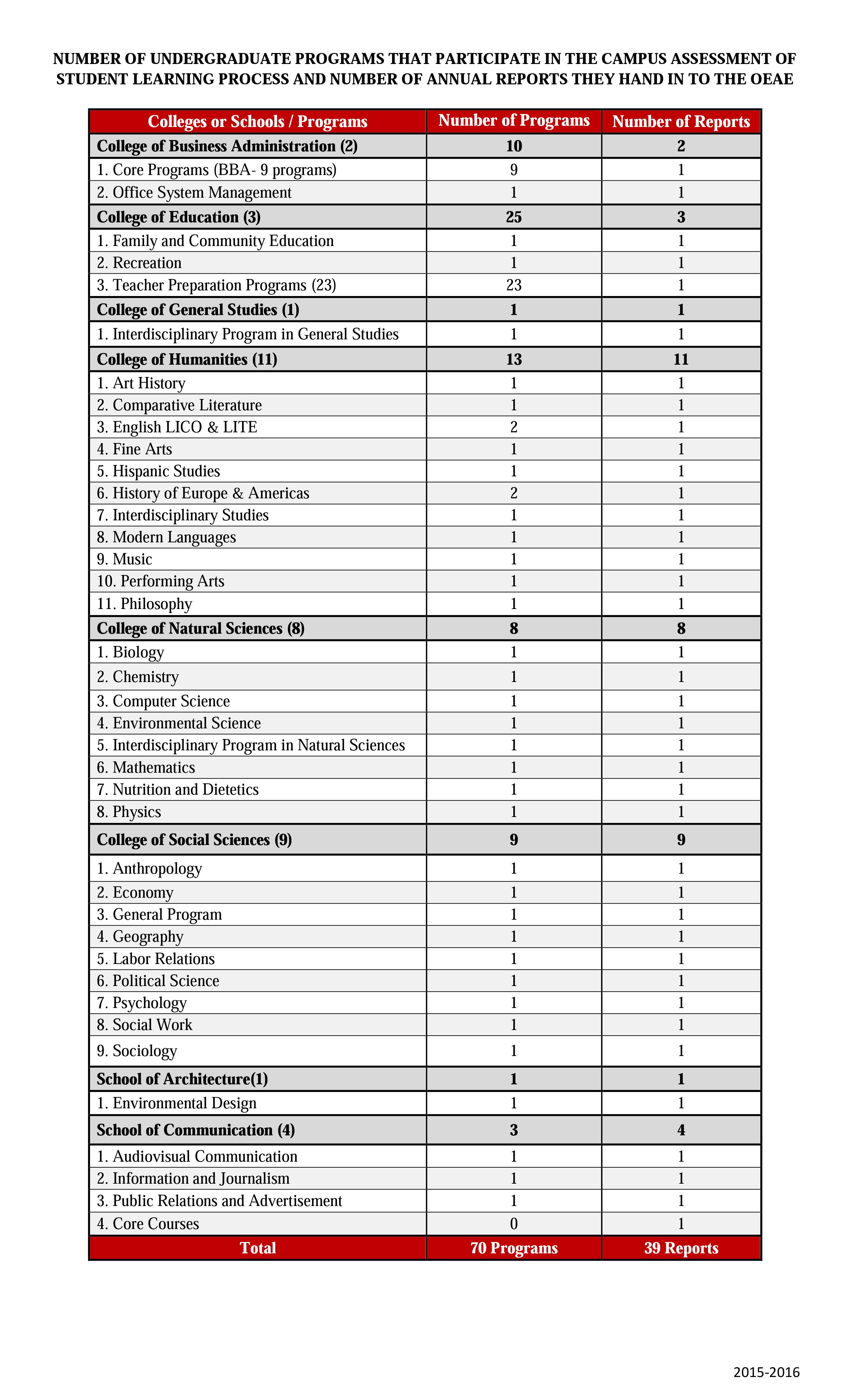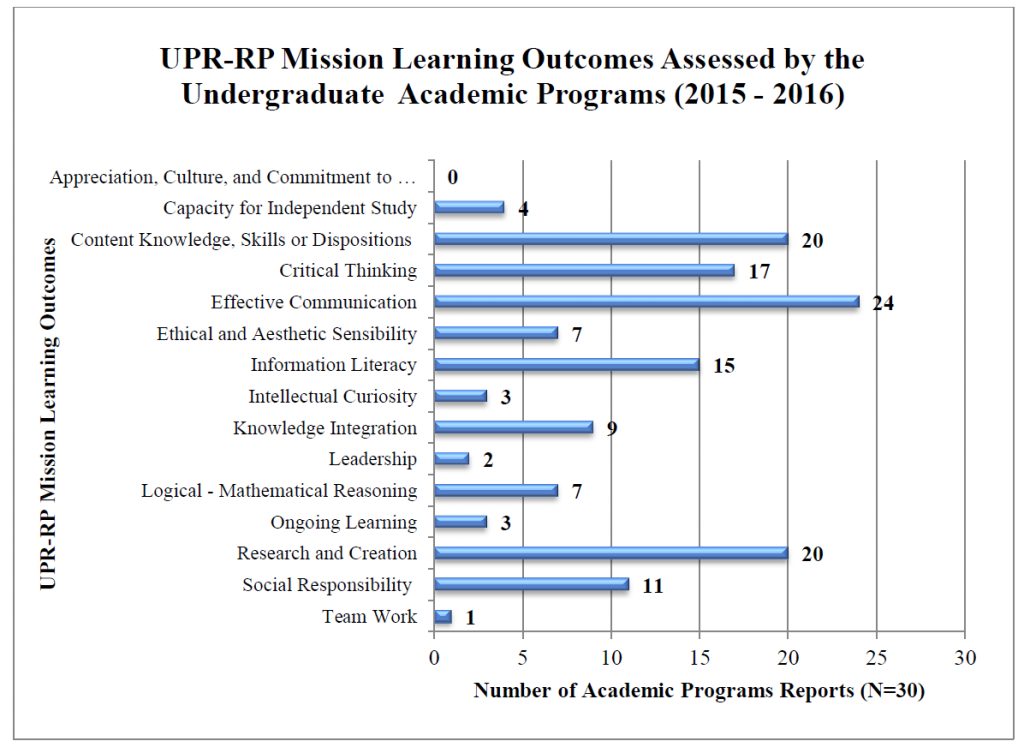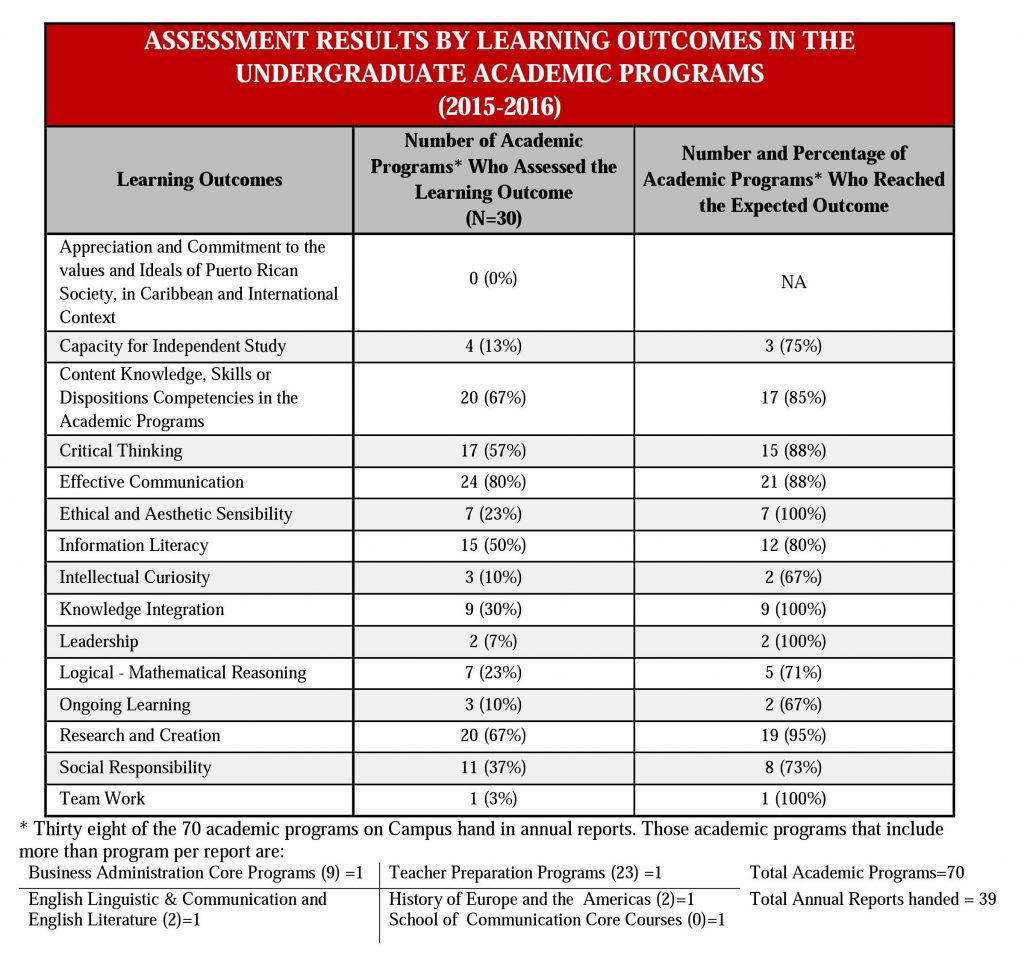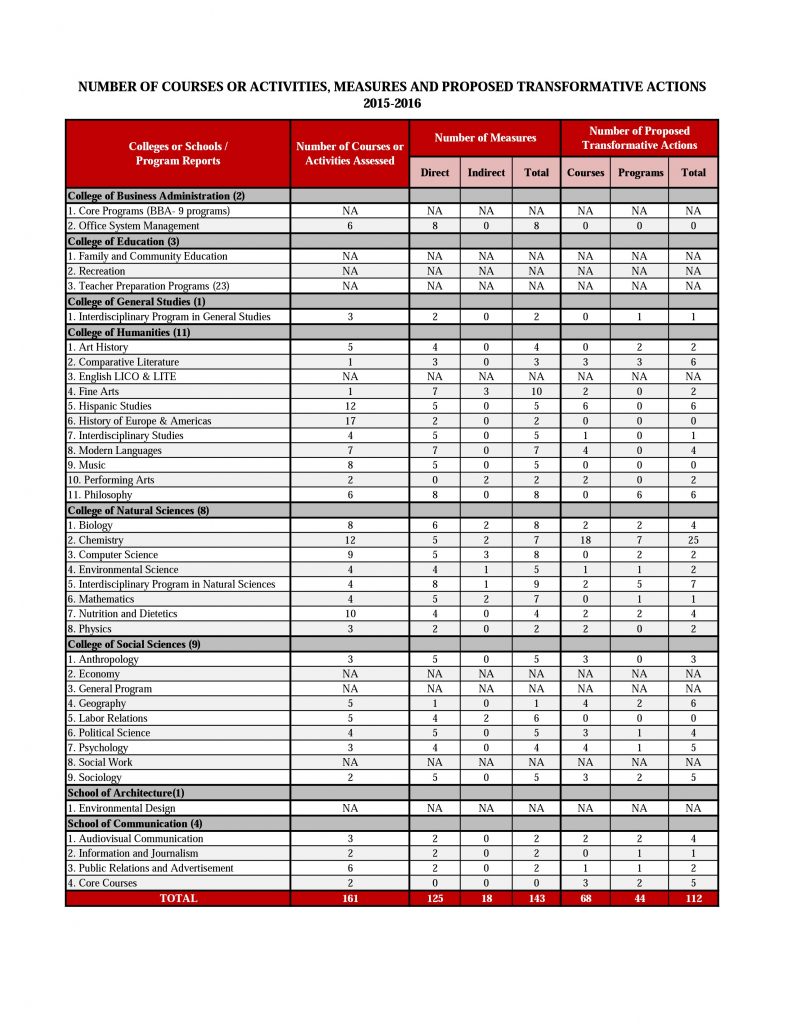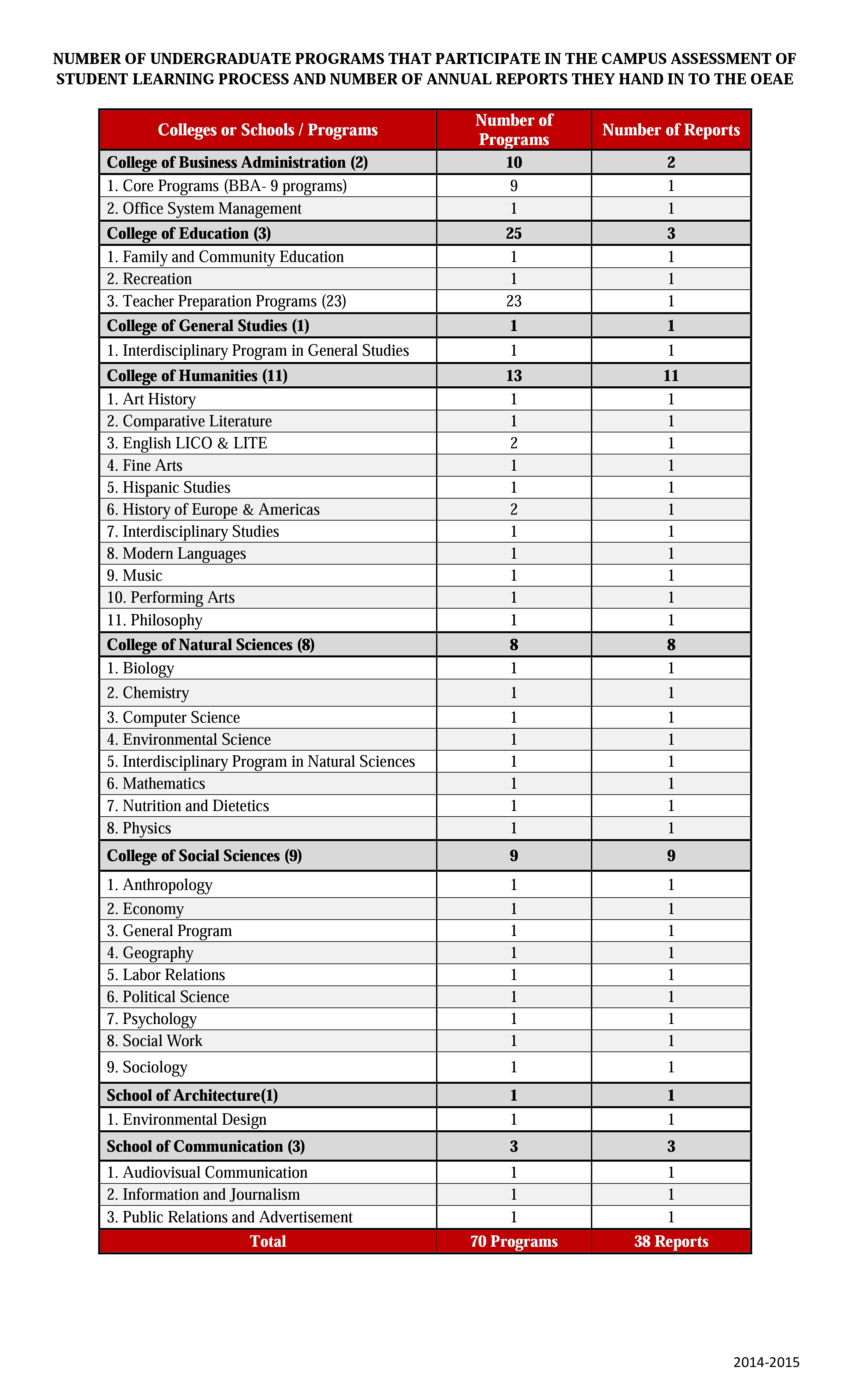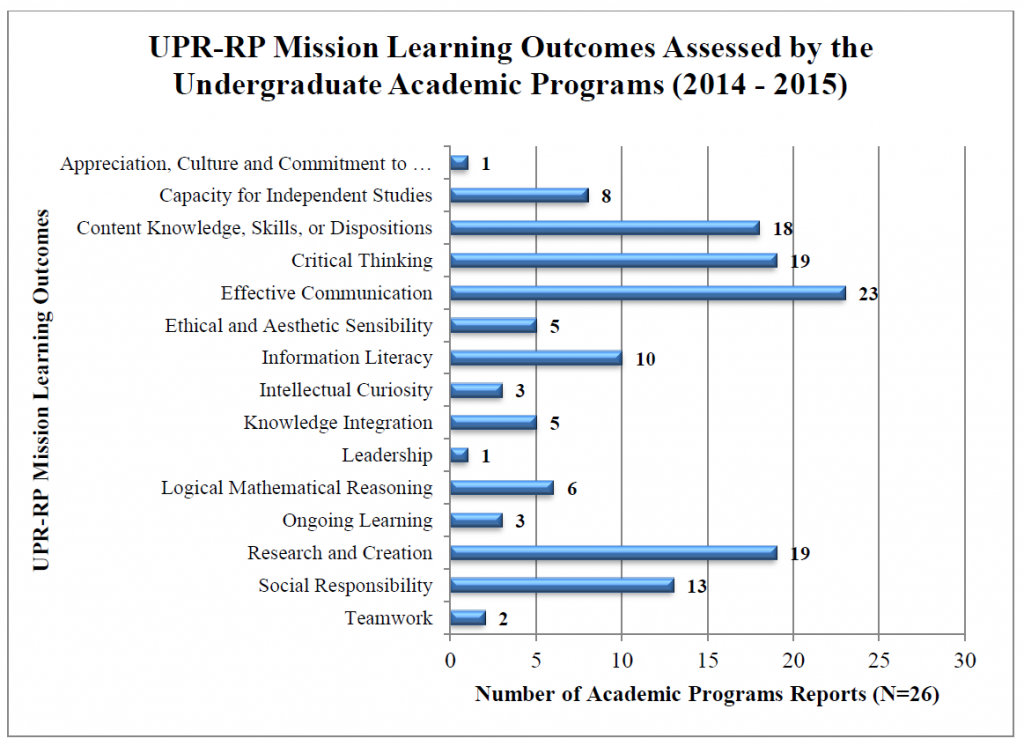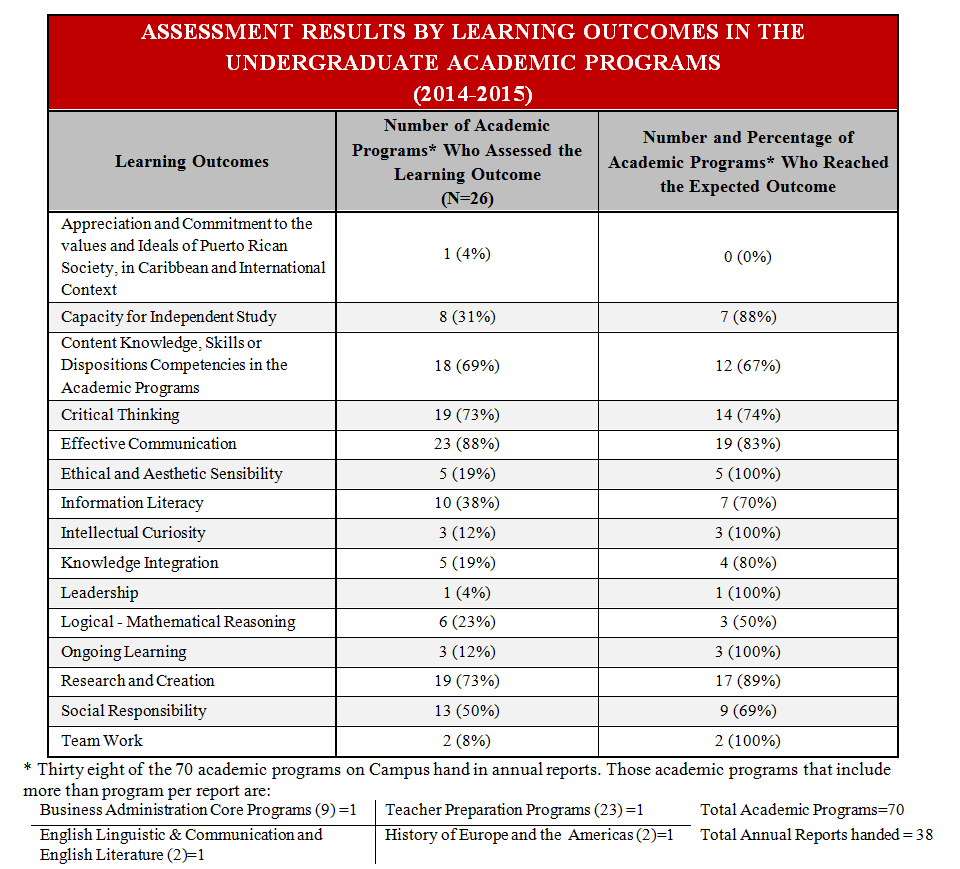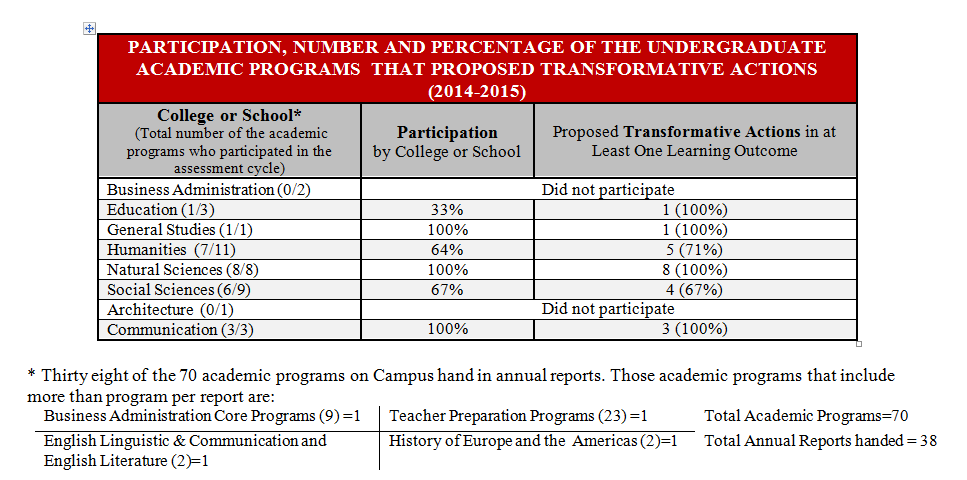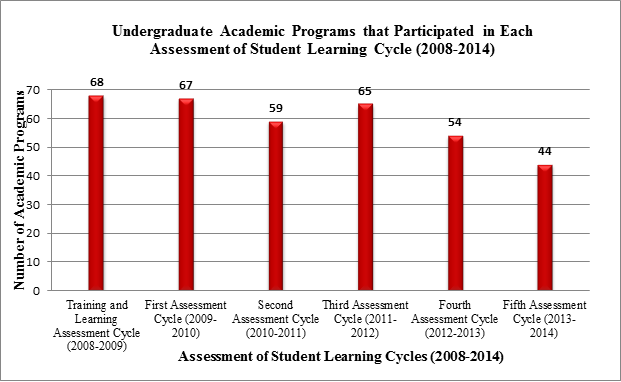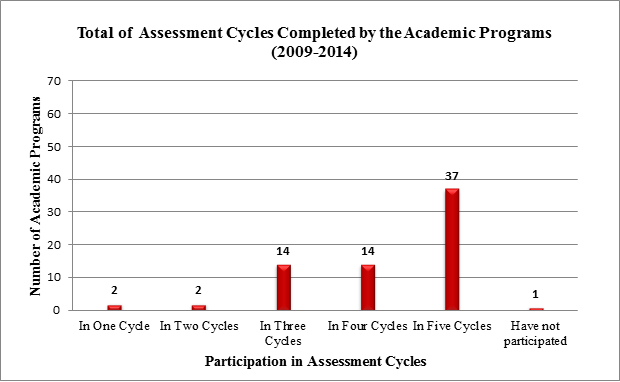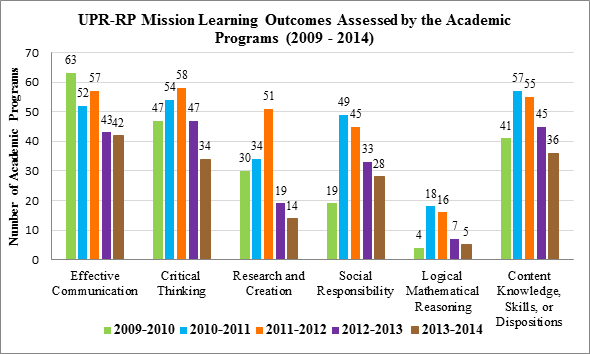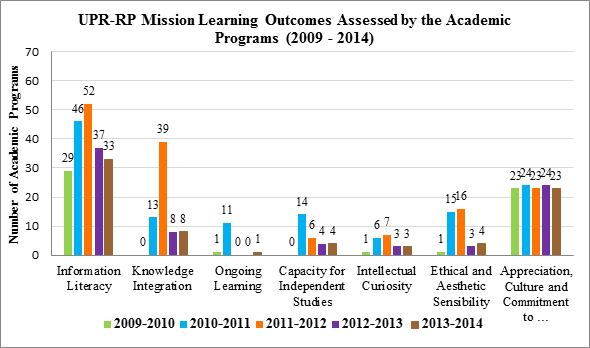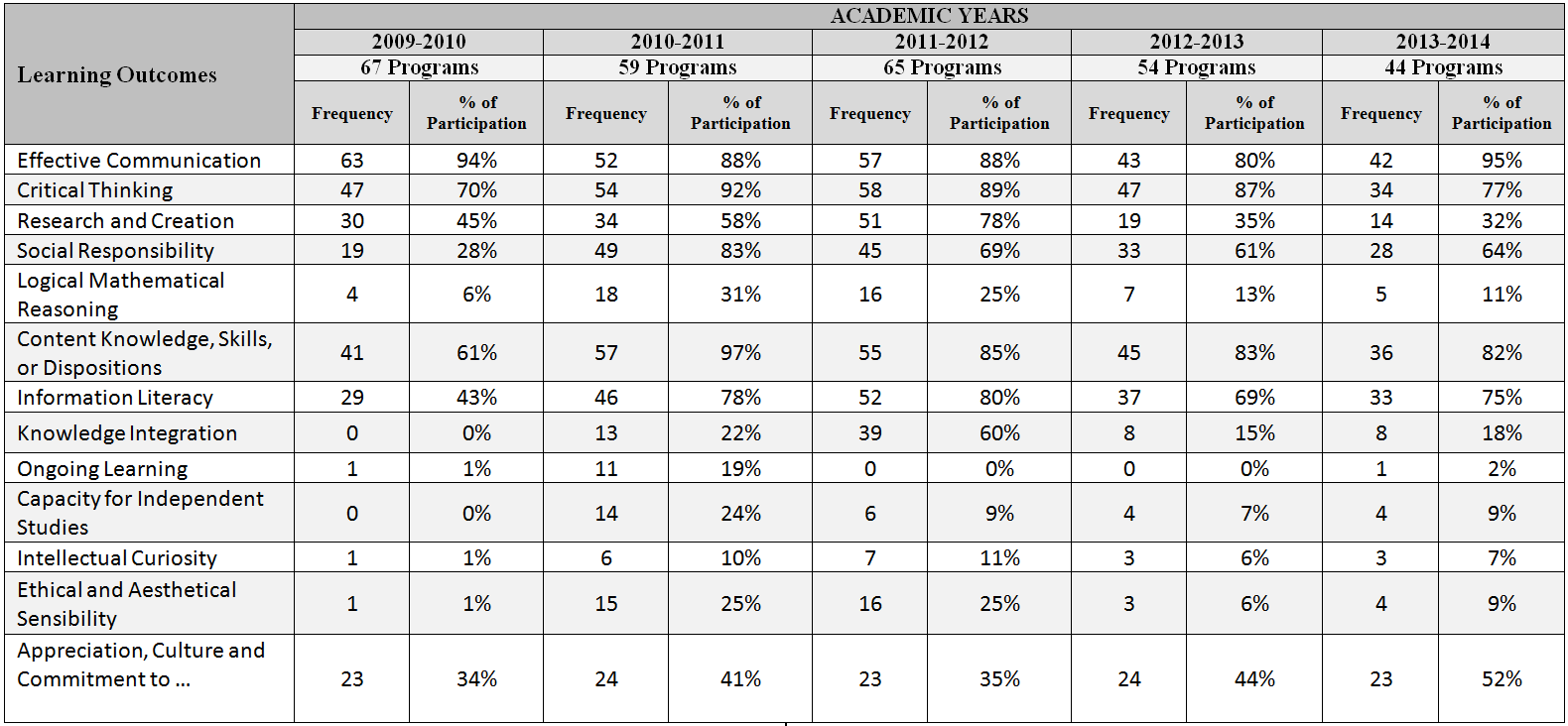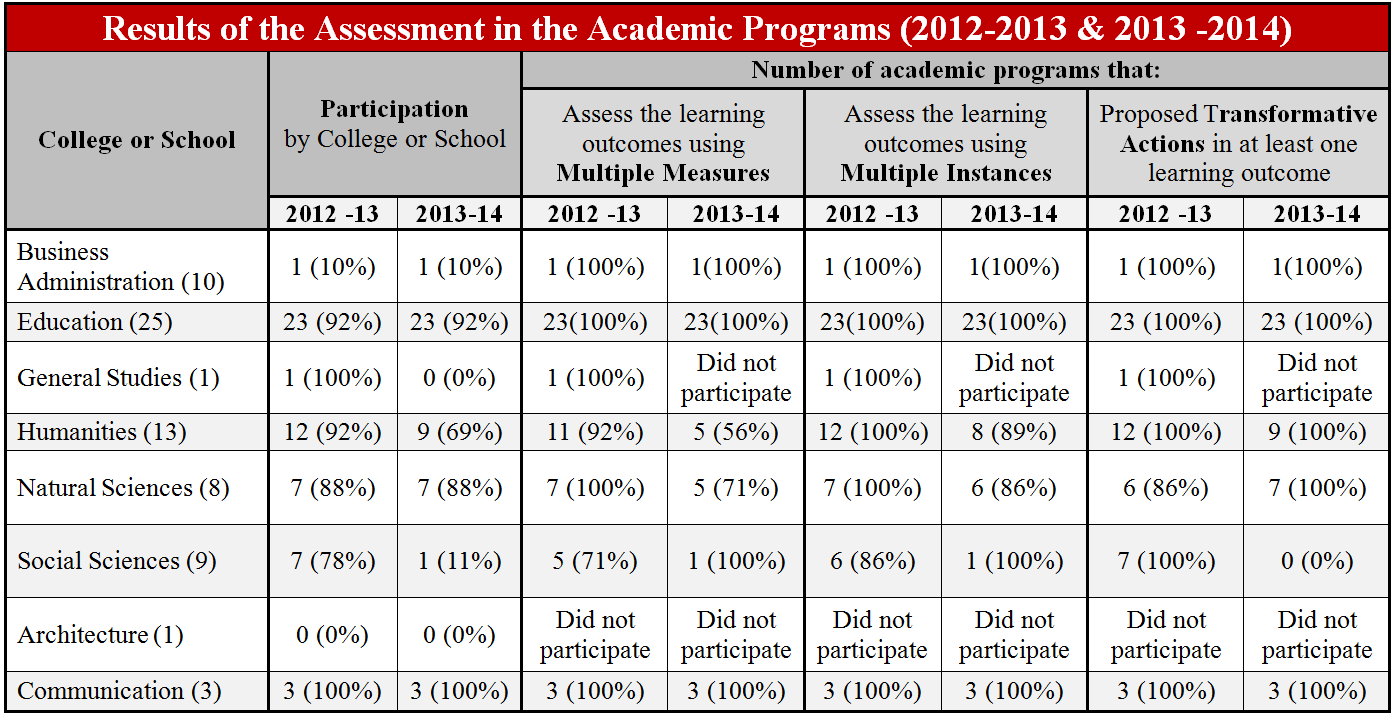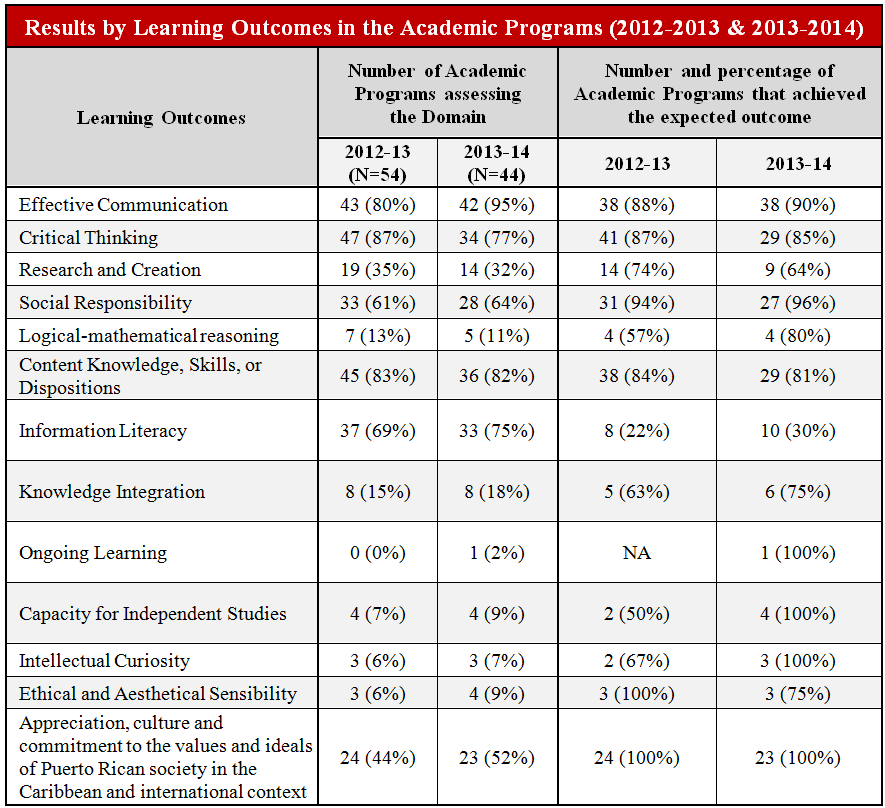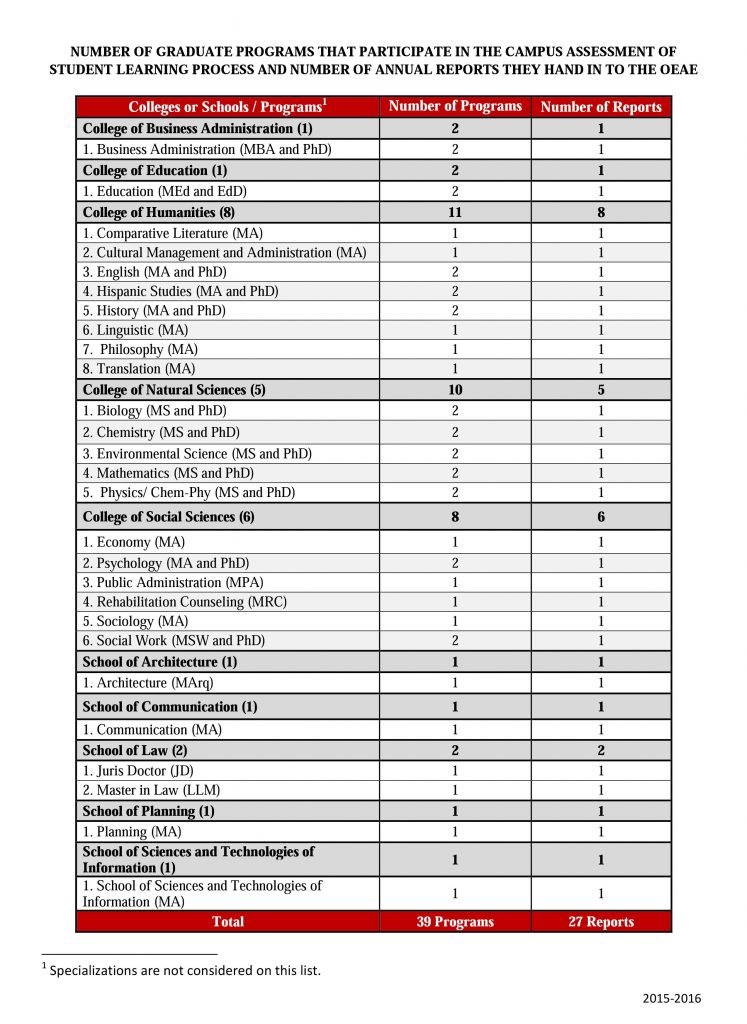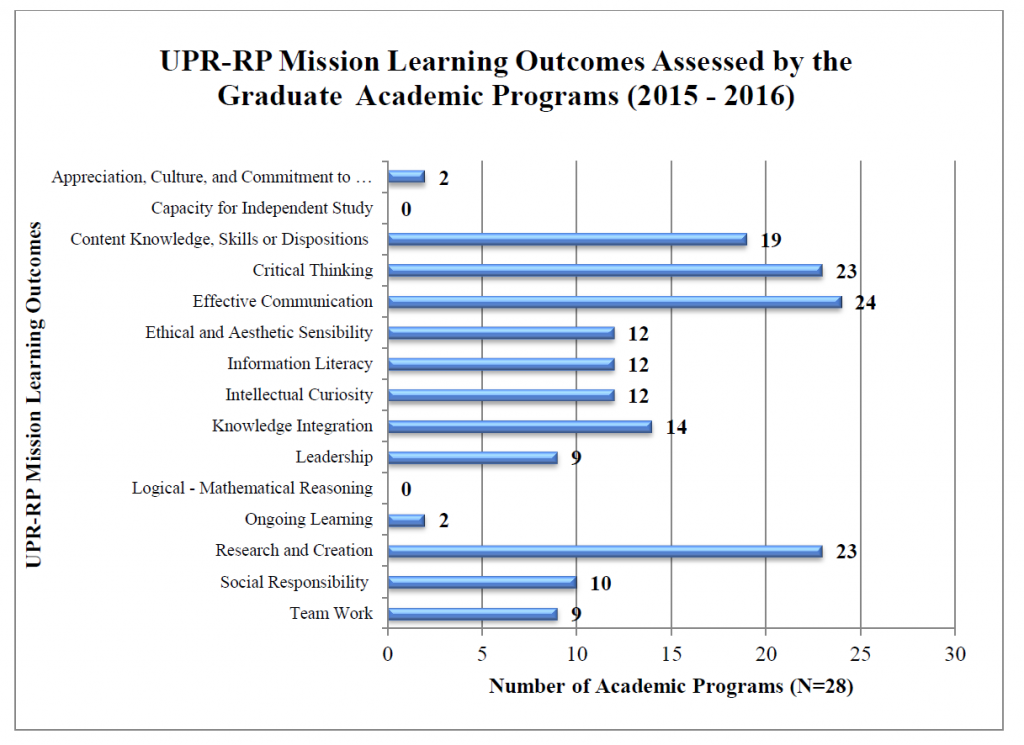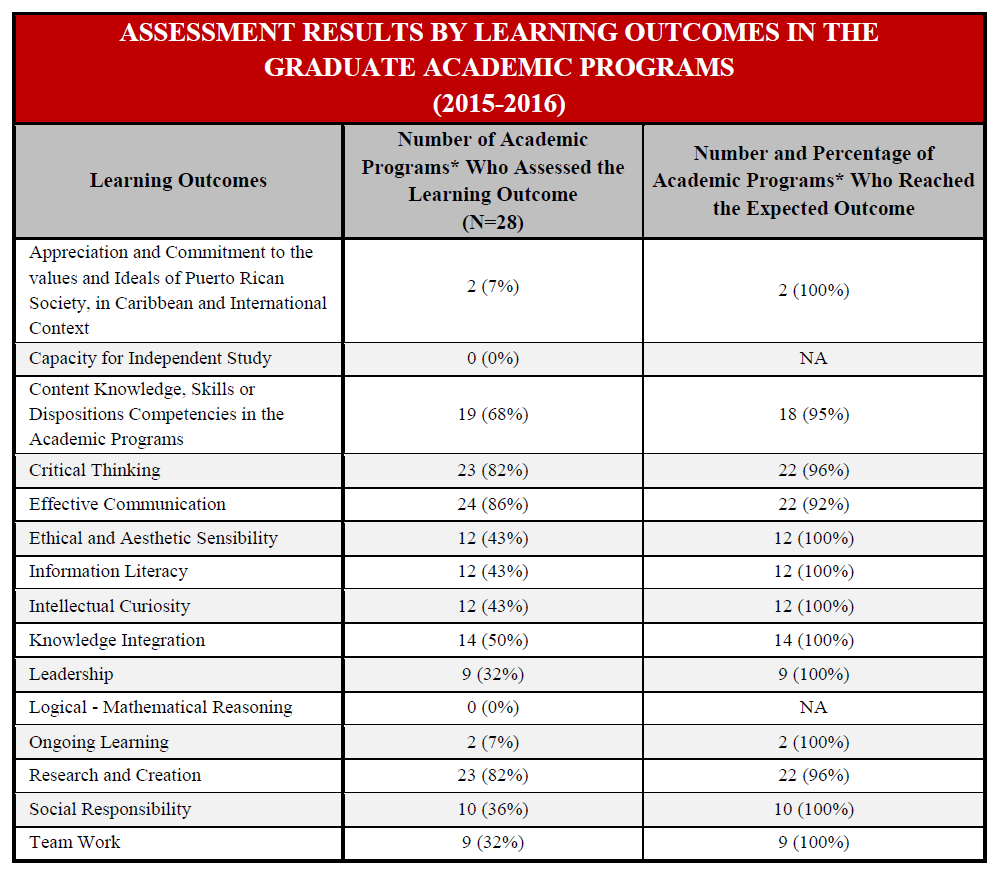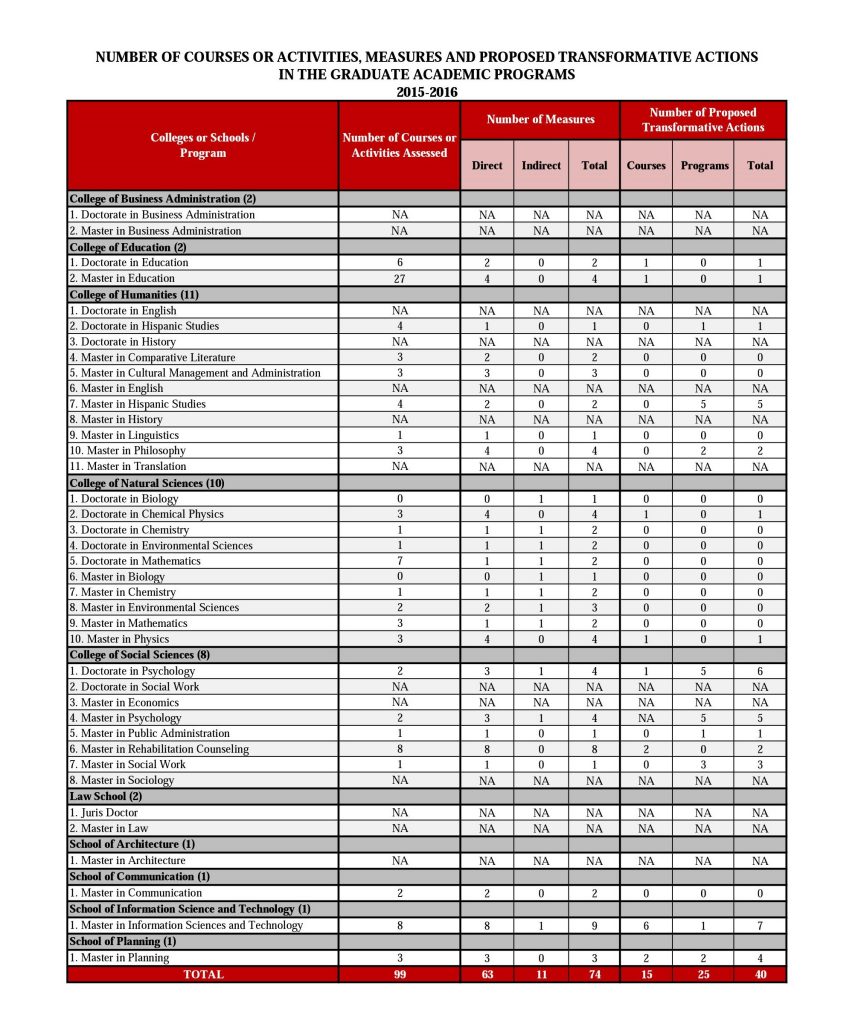Undergraduate Program
- Program Participation
Program Participation
The following figures represent the number of programs participating in each cycle (academic year), the total of cycles completed by the programs, and the number of programs that assessed the UPR-RP mission-learning outcomes by academic year. The table included also shows the number of programs that assessed each learning outcome including the percent of participation.
- Assessment Findings and Transforming Actions
Assessment Findings and Transforming Actions
- Summary of Assessment Results
Summary of Assessment Results
Table of Assessment Results by Learning Outcomes in the Academic Year 2013 - 2014
Table of Assessment Results by Learning Outcomes in the Academic Year 2012 - 2013
The following table shows the number and percentage of undergraduate programs’ participation in the assessment process, the number of them who used multiple measures and measured in different instances, and the ones that proposed at least one transformative action for the 2012-13 and 2013-14 academic years, by College or School.
The following table summarizes the number and percentage of academic programs assessing each learning outcome in the 2012-13 and 2013-14 academic years. It also summarizes the number and percentage of academic programs that achieved the expected outcome.
Graduate Program
- Implementation of the Learning Assessment Process
The implementation of the learning assessment process at the graduate level, which began in 2007, can be conceptualized in three phases. The programs transitioned across phases at different paces. The figure represents the assessment graduate implementation process.
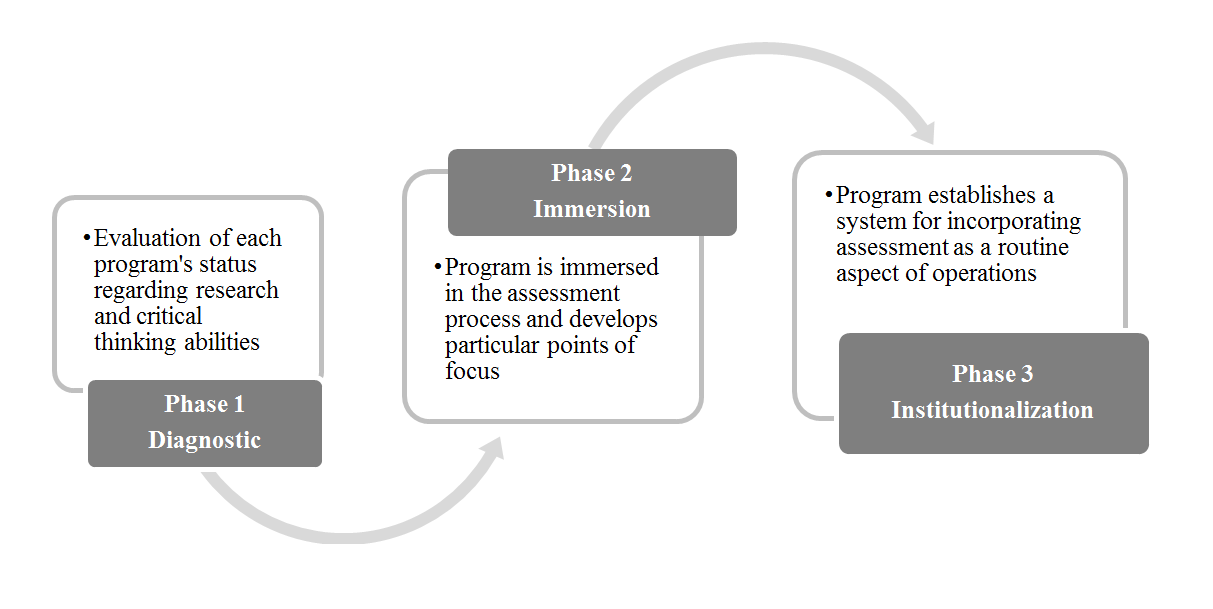 At this moment, graduate programs are in the implementation phase. The above figure represents the process. To assure the continuity of this process, learning assessment continues to be an important part of the institutional evaluation process of graduate programs. The self-study guide and the institutional program evaluation plan can be found in: http://graduados.uprrp.edu/index.php?Itemid=314&lang=es
At this moment, graduate programs are in the implementation phase. The above figure represents the process. To assure the continuity of this process, learning assessment continues to be an important part of the institutional evaluation process of graduate programs. The self-study guide and the institutional program evaluation plan can be found in: http://graduados.uprrp.edu/index.php?Itemid=314&lang=es
- 2013-2014
Most graduate programs evaluated effective communication and critical thinking in 2012-13. In 2013-14 these activities were expanded to include Research and Creation and most of the programs met the expected outcomes according to the minimum expectations that they established. This reflects the strength of our academic programs. The following table presents the frequency and percentage of graduate programs for 2013-14 that reached the expected outcomes.
The assessment of the student learning process at the graduate level will be reinforced with the materials and resources available in the OEAE and the integration of the use of technology.
As of 2015 all of the graduate programs have profiles that list the research skills and learning outcomes that those who finish the program should acquire. Coursework and other degree requirements are designed to provide students with the knowledge, skills, and experience they need to comply with profile characteristics. The programs rely on assessment activities to continually improve themselves and enrich the learning opportunities that they provide students.
Updated by Arlene Fontánez on April 26, 2017
Contact us
